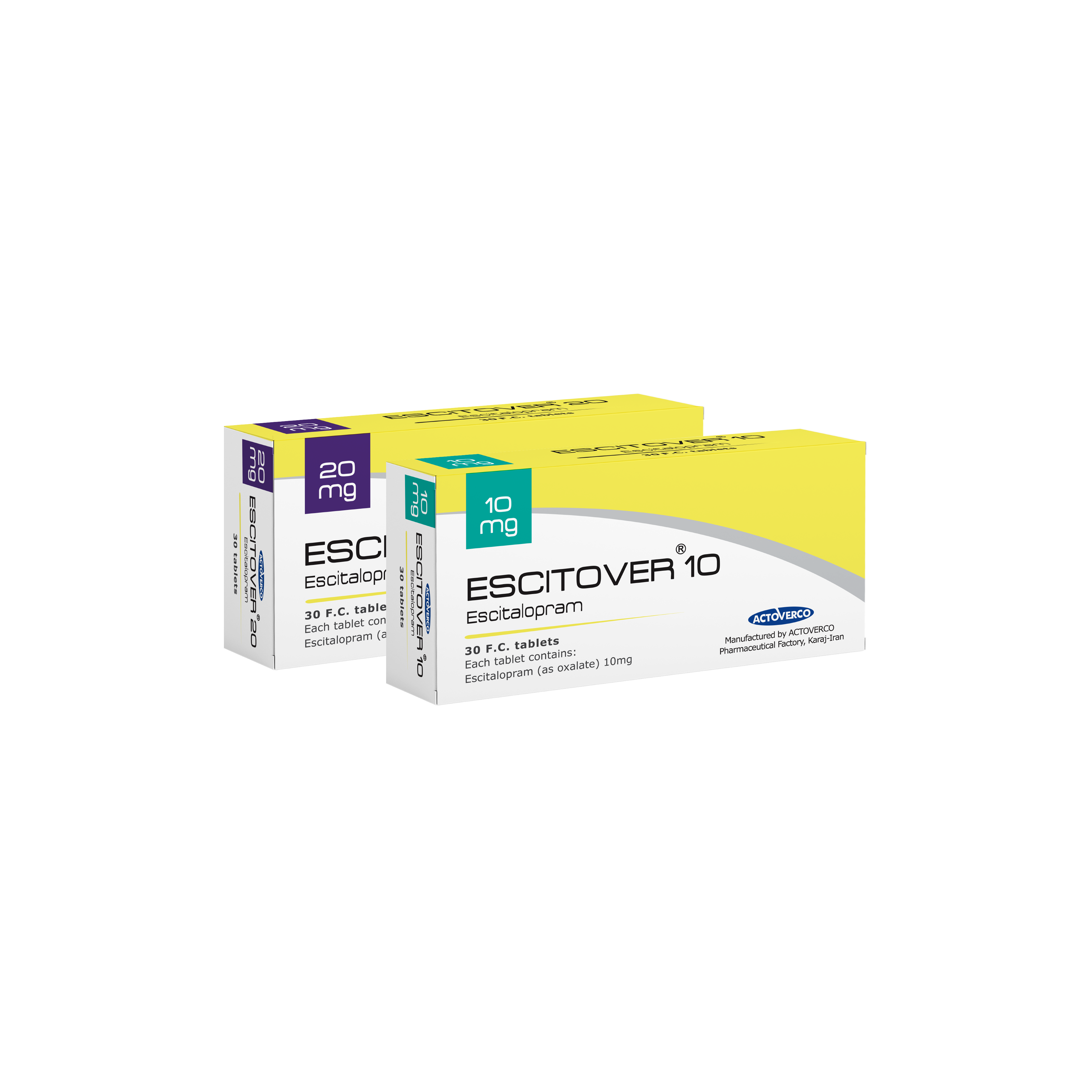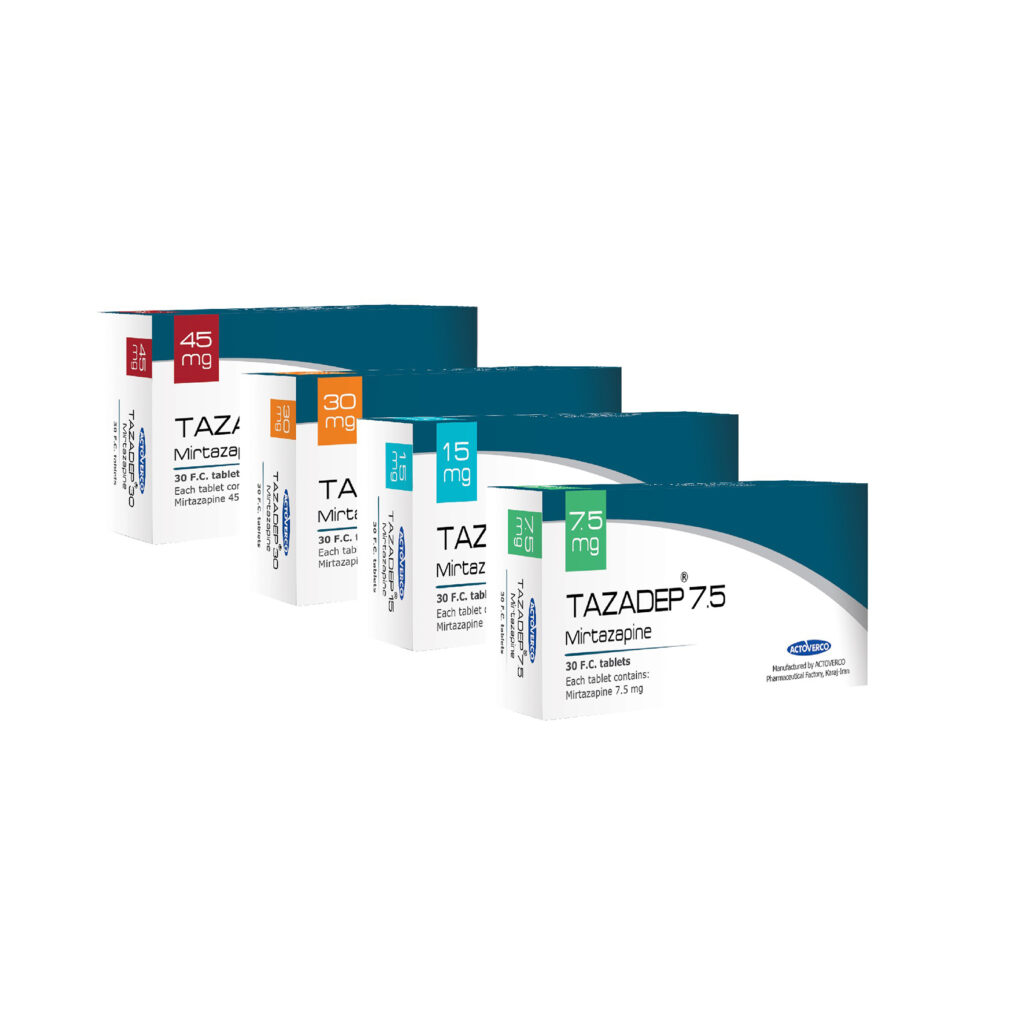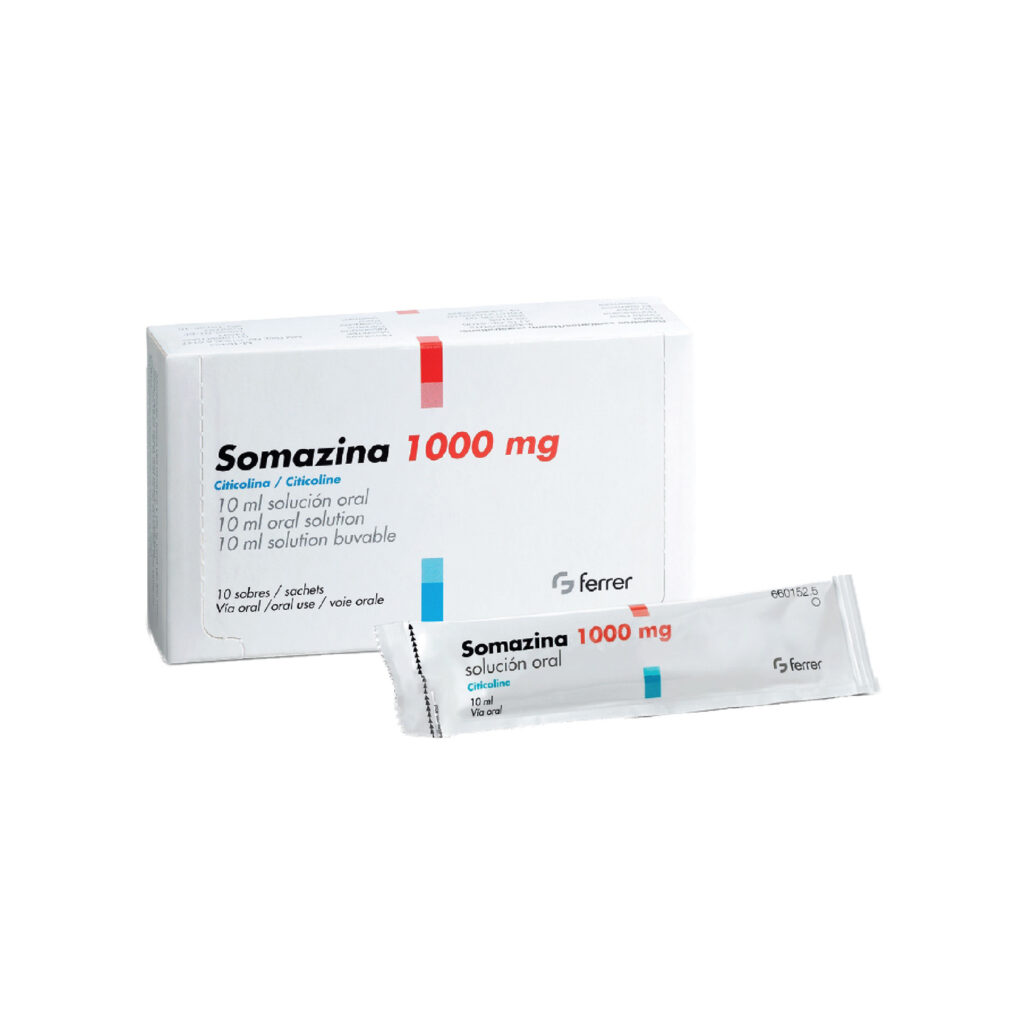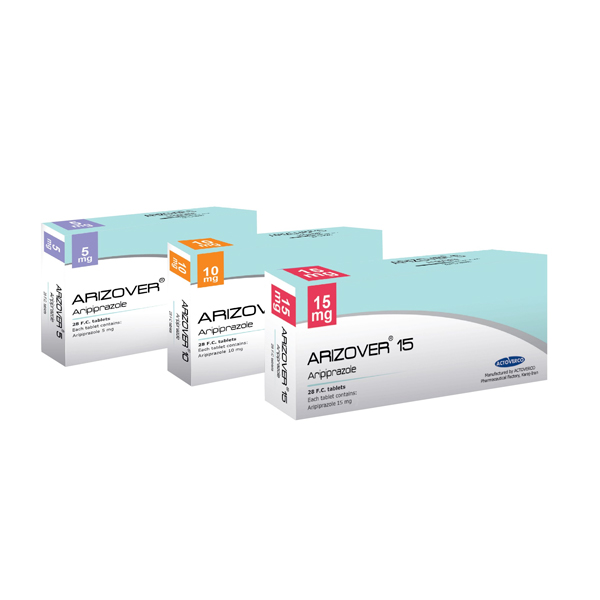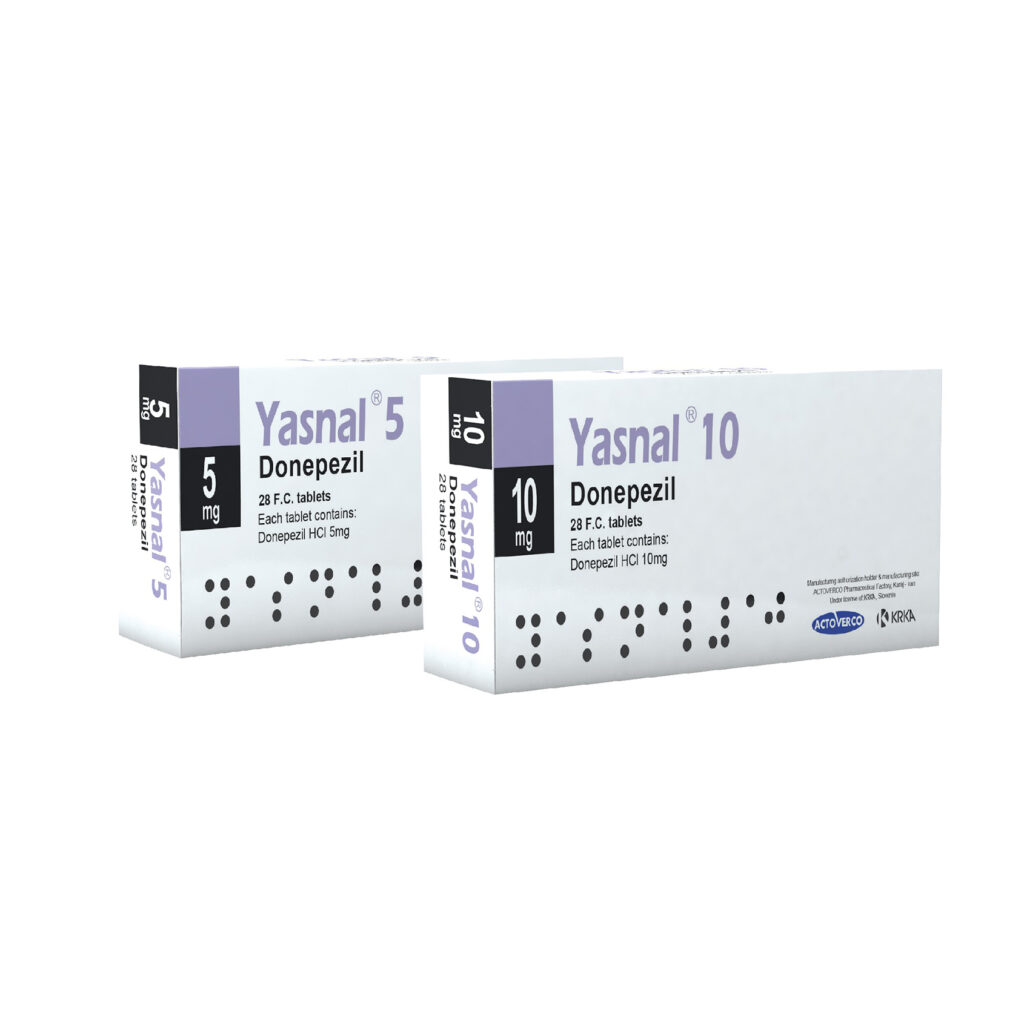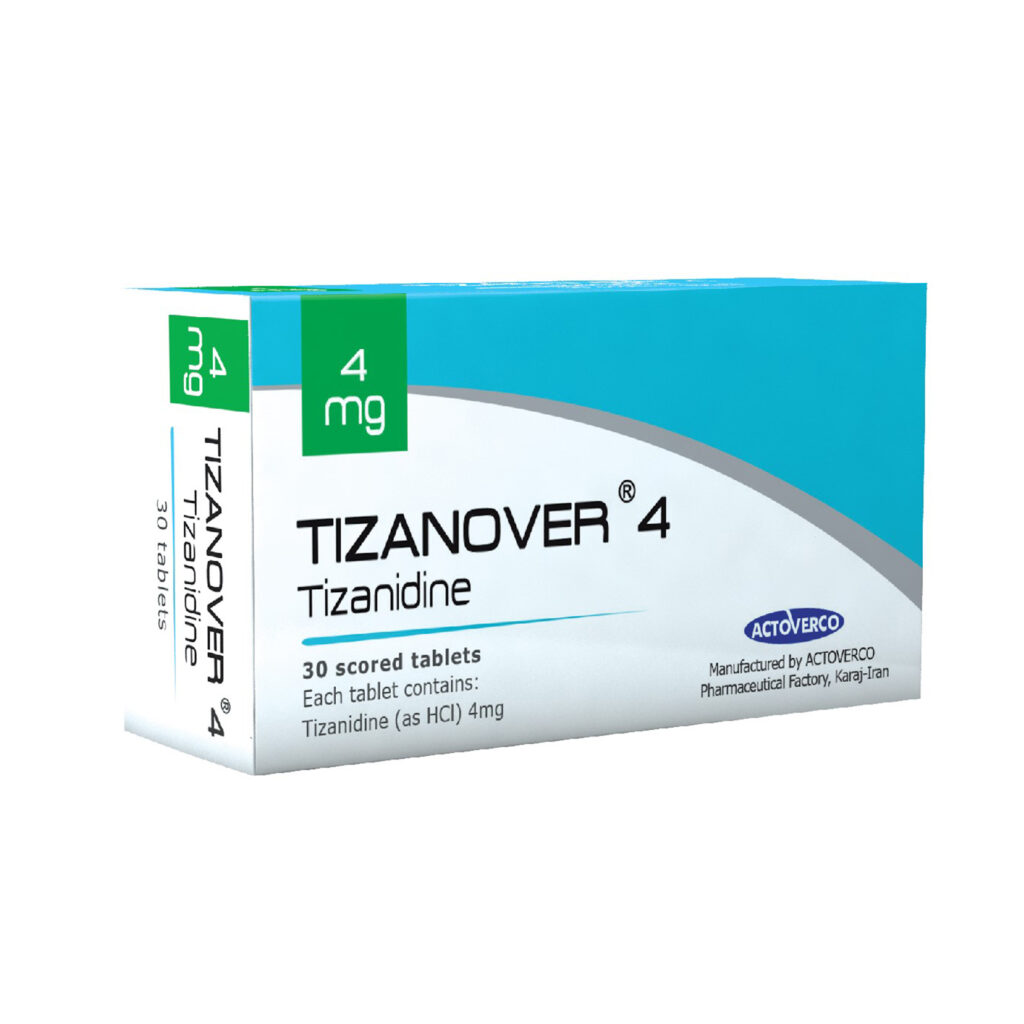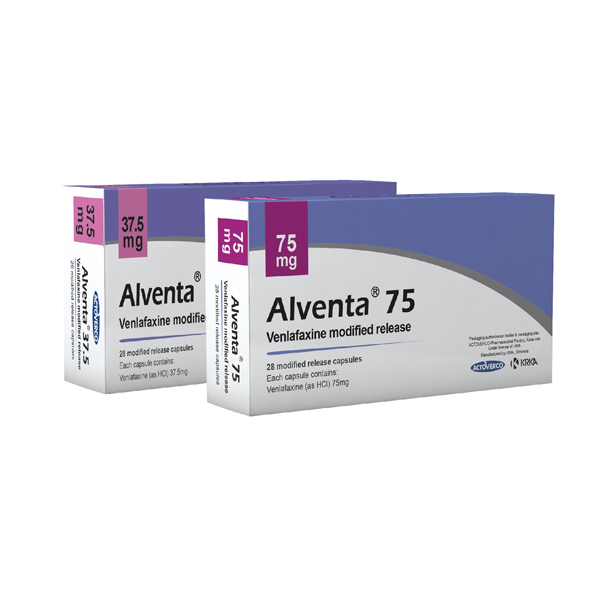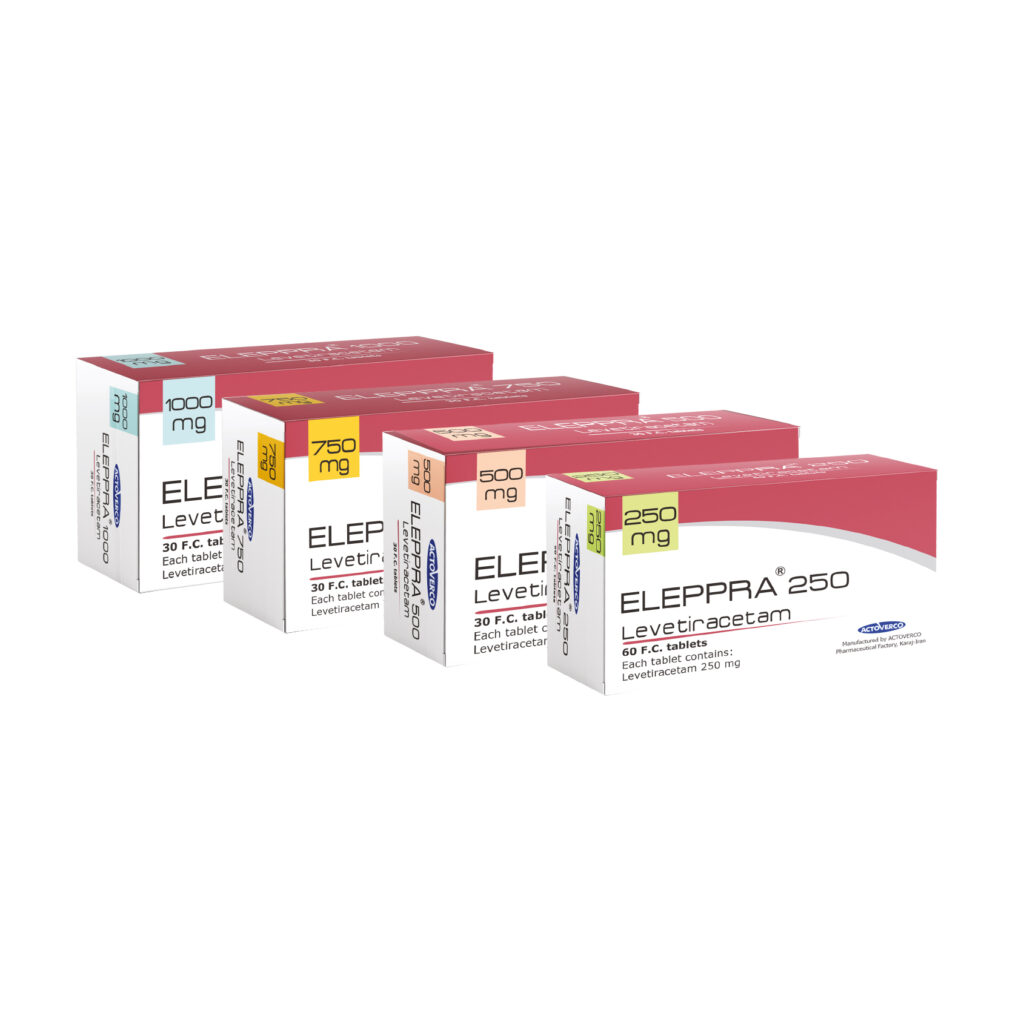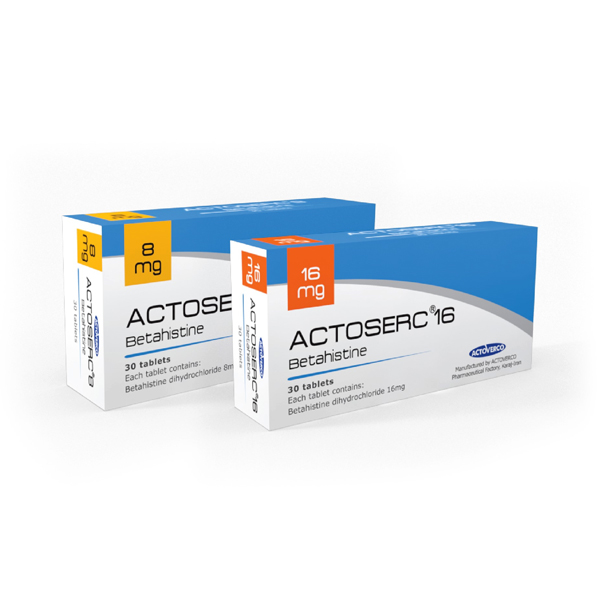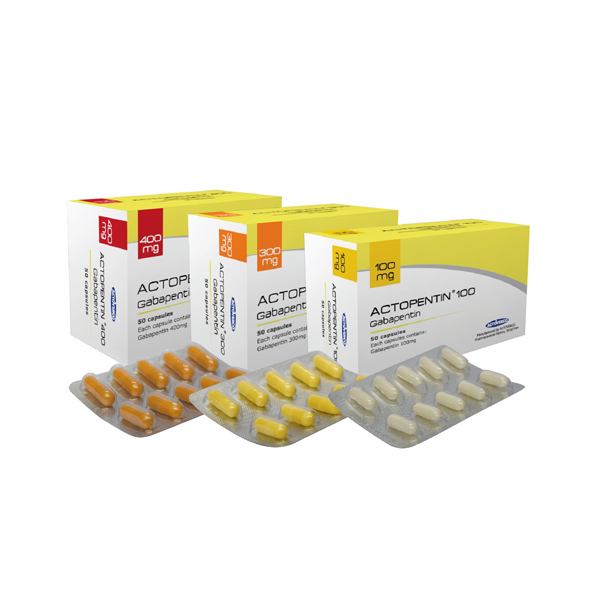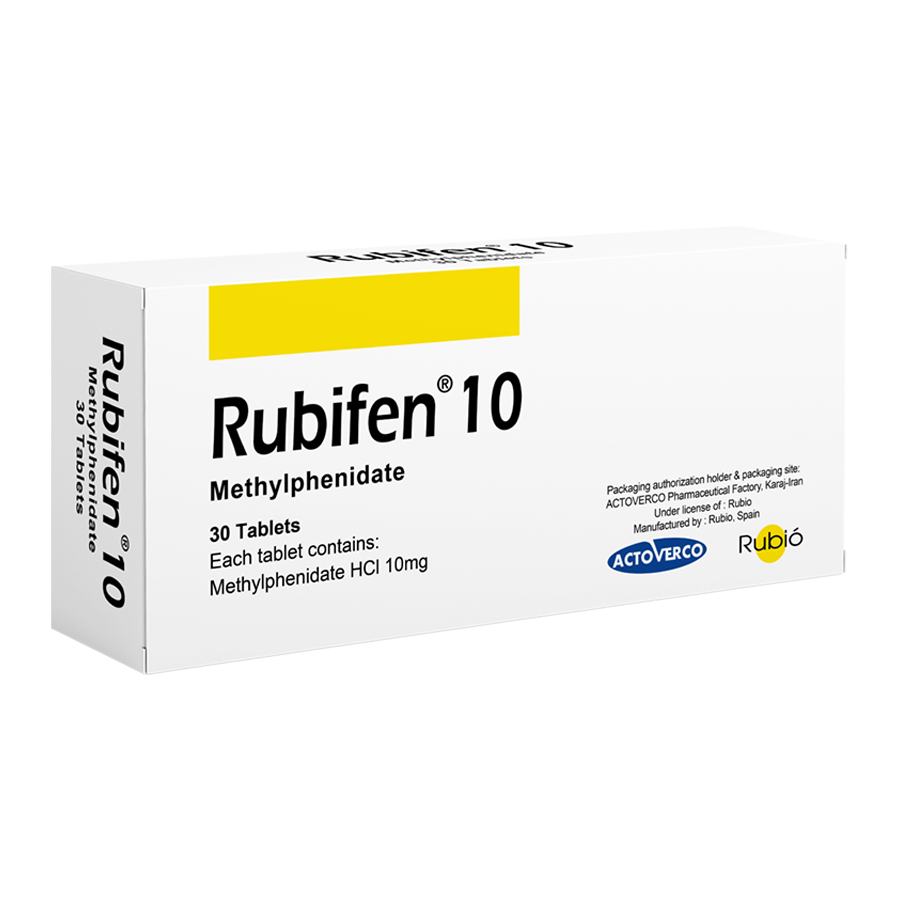Escitover (Escitalopram)
Category: Neurological Drugs, Psychiatric medication
Product Description:
Escitover is brand name of drug called Escitalopram and manufactured by Actoverco pharmaceutical factory.
Escitover is an antidepressant belonging to a group of drugs called selective serotonin reuptake inhibitors (SSRIs). It affects chemicals in the brain that may be unbalanced in people with depression or anxiety.
Product Introduction
Dosage form:
Film coated tablet 10, 20 mg
What is Escitover (escitalopram) used for?
-
It is used to treat depression.
-
It is used to treat anxiety.
-
It may be given to you for other reasons. Talk with the doctor
Important notes before taking Escitover (escitalopram):
Tell your doctor or pharmacist if you have an allergy to donepezil or any other part of this drug.
Tell your doctor or pharmacist if you are allergic to any drugs like this one, any other drugs, foods, or other substances. Tell your doctor about the allergy and what signs you had, like rash; hives; itching; shortness of breath; wheezing; cough; swelling of face, lips, tongue, or throat; or any other signs.
Tell your doctor or pharmacist if you are taking any of these drugs: Linezolid, Methylene blue, Citalopram or Pimozide
Tell your doctor or pharmacist if you have taken any drug used for depression, or Parkinson’s disease in the last 14 days.
Tell your doctor if you are pregnant, especially if you are in the last few months of your pregnancy, or if you plan to become pregnant or are breast-feeding. If you become pregnant while taking escitalopram, call your doctor.
Tell your doctor and pharmacist about all of your drugs (prescription or OTC, natural products, vitamins) and health problems. You must check to make sure that it is safe for you to take this drug with all of your drugs and health problems. Do not start, stop, or change the dose of any drug without checking with your doctor.
Important notes while taking Escitover (escitalopram):
- Tell all of your health care providers that you take this drug. This includes your doctors, nurses, pharmacists, and dentists.
- Take this drug exactly as prescribed by your doctor. Do not take this medicine in larger or smaller amounts or for longer than recommended.
- You may take Escitover (escitalopram) with or without food. If it causes upset stomach, take with food. Try to take it at the same time each day.
- In depression, sleep and appetite may get better soon after starting Escitover (escitalopram). Other low mood signs may take up to 4 weeks to get better. Keep using Escitover as directed and tell your doctor if your symptoms do not improve.
- Avoid drinking alcohol while taking this drug.
- Do not stop taking escitalopram without talking to your doctor. If you suddenly stop taking escitalopram, you may experience withdrawal symptoms such as mood changes, irritability, agitation, dizziness, numbness or tingling in the hands or feet, anxiety, confusion, headache, tiredness, and difficulty falling asleep or staying asleep. Your doctor will probably decrease your dose gradually.
- A very bad and sometimes deadly health problem called serotonin syndrome may happen. The risk may be greater if you take this drug with drugs for depression, migraines, or certain other drugs. Call your doctor right away if you have agitation; change in balance; confusion; hallucinations; fever; fast or abnormal heartbeat; flushing; muscle twitching or stiffness; seizures; shivering or shaking; sweating a lot; very bad diarrhea, upset stomach, or throwing up; or very bad headache.
Escitover (escitalopram) side effects:
Even though it may be rare, some people may have very bad and sometimes deadly side effects when taking a drug. Tell your doctor or get medical help right away if you have any of the following signs or symptoms that may be related to a very bad side effect:
- Signs of an allergic reaction, like rash; hives; itching; red, swollen, blistered, or peeling skin with or without fever; wheezing; tightness in the chest or throat; trouble breathing, swallowing, or talking; unusual hoarseness; or swelling of the mouth, face, lips, tongue, or throat;
- Report any new or worsening symptoms to your doctor, such as: mood or behavior changes, anxiety, panic attacks, trouble sleeping, or if you feel impulsive, irritable, agitated, hostile, aggressive, restless, hyperactive (mentally or physically), more depressed, or have thoughts about suicide or hurting yourself.
- This drug may raise the chance of bleeding. Sometimes, bleeding can be life-threatening. Talk with the doctor.
- Some people may have a higher chance of eye problems with this drug. Your doctor may want you to have an eye exam to see if you have a higher chance of these eye problems. Call your doctor right away if you have eye pain, change in eyesight, or swelling or redness in or around the eye.
All drugs may cause side effects. However, many people have no side effects or only have minor side effects. Call your doctor or get medical help if any of these side effects or any other side effects bother you or do not go away:
- Headache ;
- Dizziness;
- Upset stomach;
- Loose stools (diarrhea);
- Constipation;
- Dry mouth;
- Not able to sleep;
- Sweating a lot;
- Flu-like signs;
- Feeling tired or weak;
- Feeling sleepy;
- Runny nose;
- Yawning;
- Change in sex ability or interest in sex .
What do I do if I miss a dose?
Take the missed dose as soon as you remember. Skip the missed dose if it is almost time for your next scheduled dose.
Do not take extra medicine to make up the missed dose.
How do I store and/or throw out this drug?
- Keep this drug out of reach of children.
- Do not use this drug after expiry date. Throw away unused or expired drugs. Do not flush down a toilet or pour down a drain unless you are told to do so. Check with your pharmacist if you have questions about the best way to throw out drugs.

